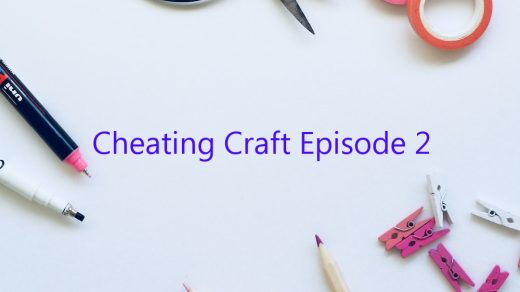If you’re looking for a creative and unique hobby to start, consider caligraphy! This ancient art form is all about beautifully writing out letters and words. Here’s a guide on how to start a caligraphy hobby:
1. Buy a caligraphy set. A good set will include a pen, nibs, ink, and a pen holder.
2. Choose the right paper. You’ll want paper that is designed for caligraphy, which is typically thicker and smoother than regular paper.
3. Learn the basics. Before you start writing out your own words, it’s a good idea to learn the basics of caligraphy. There are plenty of online tutorials that can teach you the basics.
4. Experiment. The best part of a caligraphy hobby is experimenting with different lettering styles and techniques. Try out different fonts and styles and see what you like best.
5. Get creative. Once you’ve mastered the basics, start experimenting with your own designs and styles. Try writing out quotes, song lyrics, or even your own thoughts and ideas.
6. Join a caligraphy community. There are plenty of online communities where you can share your work and get feedback from other caligraphy enthusiasts.
7. Have fun! Caligraphy is a fun and relaxing hobby that can be enjoyed by anyone.
Contents
How do beginners practice calligraphy?
In order to practice calligraphy, beginners can start by using a straight edge and a light pencil to practice the basic strokes that make up each letter. It is important to remember to keep the letters consistent in size and shape, and to use a light hand when writing.
After practicing the basic strokes, beginners can start to create letters by connecting the basic strokes together. It is important to make sure that the letters are consistent in size and shape, and that the letters flow together smoothly.
It is also important to practice regularly in order to improve your skills. You can practice by writing out the alphabet, by writing quotes or phrases, or by drawing images.
The best way to improve your calligraphy skills is to practice regularly and to experiment with different techniques and styles. You can also join a calligraphy class or workshop to learn more about the art of calligraphy.
Can I teach myself calligraphy?
Yes, you can teach yourself calligraphy. However, it will take some practice to get the hang of it.
There are a few things you can do to teach yourself calligraphy. First, you’ll need some calligraphy supplies, including a calligraphy pen, ink, and paper. You can find these supplies online or at your local art store.
Once you have your supplies, you can start practicing. There are a number of tutorials online that can help you get started. You can also find instructional books and videos to help you learn the basics of calligraphy.
It will take some practice to get the hang of calligraphy, but with a little effort, you can teach yourself this art form.
Do calligraphers make money?
Do calligraphers make money?
This is a difficult question to answer, as it depends on the particular calligrapher’s skills, experience, and client base. However, in general, calligraphers can make a good living if they are skillful and well-connected.
Many calligraphers find work through word-of-mouth referrals, so it is important to maintain good relationships with clients and peers. Additionally, many calligraphers sell their work through galleries or online markets, so it is important to have an attractive and professional portfolio.
Ultimately, it is up to the individual calligrapher to create a successful business. However, with hard work and a dedication to quality, most calligraphers can make a respectable living.
How much money can you make as a calligrapher?
There is no one definitive answer to this question since it can vary greatly depending on a number of factors, such as how much experience you have, what type of calligraphy you do, and how in-demand your work is. However, if you are a skilled calligrapher with a lot of experience, you could potentially make a very good living doing this type of work.
One way to estimate how much money you could make as a calligrapher is to look at the rates that professional calligraphers charge. According to The Professional Calligrapher magazine, the average rate for wedding calligraphy is around $3 per envelope. If you were to be hired to do the calligraphy for a wedding with 100 envelopes, for example, you would earn $300.
Of course, there are many other opportunities for calligraphers to make money. You could work for businesses as a freelance calligrapher, doing things like creating logos, letterheads, and menus. Or, you could offer your services to individuals for things like wedding invitations, certificates, and special event announcements.
Ultimately, how much money you can make as a calligrapher depends on your skills and experience, as well as the demand for your work. But if you are good at what you do, there is the potential to make a very good living as a professional calligrapher.”
What is the easiest style of calligraphy to learn?
When it comes to calligraphy, there are a variety of styles to choose from. Some are more difficult than others, but which is the easiest style to learn?
There are a few different options when it comes to the easiest style of calligraphy to learn. One option is pointed pen calligraphy. This involves using a flexible pen with a pointed tip to create the letters. It can be a little challenging to get the hang of at first, but it is a very versatile style that can be used for a variety of purposes.
Another option is brush lettering. This is a style that involves using a brush to create the letters. It is a more relaxed style that can be used for a variety of purposes. It can be a little challenging to get the hang of at first, but it is a lot of fun to learn and practice.
The easiest style of calligraphy to learn is probably using a dip pen and ink. This is a very simple style that is perfect for beginners. All you need is a dip pen and some ink, and you can start practicing immediately. This is a great style to learn if you want to eventually move on to more challenging styles of calligraphy.
So, which is the easiest style of calligraphy to learn? It really depends on what you are looking for. If you are looking for a versatile style that you can use for a variety of purposes, then pointed pen calligraphy is a good option. If you are looking for a more relaxed style that is perfect for everyday use, then brush lettering is a good option. If you are looking for a simple style that is perfect for beginners, then dip pen calligraphy is a good option.
What should I buy to learn calligraphy?
When it comes to learning calligraphy, there are a few things you’ll need to get started. In this article, we’ll outline what you should buy to learn calligraphy.
The first thing you’ll need is a calligraphy pen. There are a few different types of calligraphy pens available on the market, so it’s important to do your research and find the right one for you. Some of the most popular types of calligraphy pens include fountain pens, dip pens, and brush pens.
Fountain pens are a great option for beginners, as they are relatively easy to use and don’t require a lot of practice to get the hang of them. Dip pens are a bit more challenging to use, but they offer a greater level of control and precision. Brush pens are perfect for people who want to create thick and textured calligraphy strokes.
Once you’ve chosen a type of calligraphy pen, you’ll need to purchase some ink. There are a variety of different inks available on the market, so it’s important to find one that is compatible with your pen. In addition, you’ll need to purchase a notebook or paper specifically for calligraphy.
There are a variety of different types of notebooks and papers available on the market, so it’s important to find one that is best suited for your needs. Some notebooks and papers are specifically designed for calligraphy, while others are not. If you’re not sure which type of notebook or paper to purchase, it’s a good idea to consult with a calligraphy specialist or instructor.
In addition to a calligraphy pen, ink, and paper, you may also want to purchase a calligraphy guide. A calligraphy guide is a great resource for beginners, as it teaches you the basics of calligraphy and provides step-by-step instructions for how to create various calligraphy strokes.
Finally, a great way to improve your calligraphy skills is to attend a calligraphy workshop or class. Workshops and classes are a great way to learn from experienced calligraphers and to practice your skills with other students.
So, what should you buy to learn calligraphy? In addition to a calligraphy pen, ink, and paper, you may also want to purchase a calligraphy guide and attend a calligraphy workshop or class.
What should I buy to start calligraphy?
If you’re interested in learning calligraphy, the first thing you need to buy is a calligraphy pen. You can find calligraphy pens at most art stores or online.
When choosing a calligraphy pen, you’ll want to consider the type of nib you want. There are three main types of nibs: pointed, italic, and chisel. Pointed nibs are the most common type of nib and are good for beginners. Italic nibs are good for writing curved letters, and chisel nibs are good for creating thick and thin lines.
You’ll also need to buy some calligraphy paper. You can find calligraphy paper at most art stores or online. When choosing paper, you’ll want to consider the weight and texture of the paper. Heavier paper is good for beginners because it’s less likely to fold or tear. Textured paper is good for adding extra texture to your letters.
In addition to a pen and paper, you may also want to buy some calligraphy ink. Calligraphy ink is available at most art stores or online. When choosing ink, you’ll want to consider the color and opacity of the ink. Opaque ink is good for beginners because it’s less likely to bleed through the paper.
That’s everything you need to get started with calligraphy!




